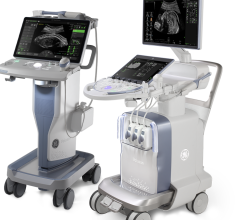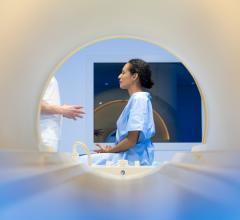October 7, 2011 — There is good news for cancer patients whose medical treatments put them at risk for future cardiac problems: using strain echocardiography can help physicians detect early signs of cardiac toxicity. To get this information out, the American Society of Echocardiography (ASE) is preparing a guideline document outlining the best way to evaluate cancer patients. ASE has also funded a research study to enhance identification of patients who are at risk.
The September 2011 death of 51-year-old Kara Kennedy via heart attack brought the link between cancer treatments and cardiovascular damage into the spotlight for patients and physicians. Kennedy, the only daughter of Sen. Edward M. Kennedy, was reportedly in remission after being treated for lung cancer in 2002.
While the direct relationship between her cancer treatment and death remain unclear, one theory links damage to her heart from her chemo treatments. With this tragedy, physician awareness of the link between specific cancer therapies and heart complications has renewed interest.
In the past, when cancer treatments were not very effective and cancer was usually fatal, little attention was paid to complications from treatment. With the advent of more successful new therapies for cancer that have raised survival rates, concerns about their long-term effects have now become paramount.
“There are 2.2 million survivors of breast cancer in the U.S. alone,” said Juan Carlos Plana, M.D., co-director of cardio-oncology, Cleveland Clinic, “and heart disease, not cancer, is the biggest risk they face.”
When a patient is diagnosed with breast cancer, she (or he) is tested for the HER2 mutation, an aggressive form of cancer that affects 20-25 percent of breast cancer patients; it is typically treated with Doxorubicin, followed by Herceptin.
Unfortunately, as many as one third of patients receiving these two drugs will develop cardiotoxicity, and some will progress to full-blown heart failure, potentially needing mechanical devices or heart transplants to survive.
The advent of strain echocardiography for early identification of cardiac problems is great news for those suffering from many forms of cancer. “The goal is not to stop cancer therapy, but to identify cardiotoxicity early and to protect the heart with medications so heart failure does not become a problem and the cancer treatment can be continued,” Plana explained. “Currently, 17 percent of patients receiving treatment for the most aggressive form of breast cancer have to stop therapy due to heart issues. The sensitivity of strain echo allows early detection so oncologists can treat their patients without fear of the downstream effects of the therapies.”
Plana, who is an ASE fellow and served as medical director of cardiac imaging at Houston’s MD Anderson Cancer Center, now heads a newly formed cardio-oncology center at the Cleveland Clinic. At the clinic, every patient slated for potentially toxic cancer therapy receives an intensive left-ventricular mechanics protocol, which includes both 3-D echocardiography with contrast and strain imaging.
To highlight the benefits of these screenings, ASE has collaborated with the European Association of Echocardiography and the American Society of Clinical Oncology to organize a guideline writing group, led by Plana. A previous paper, entitled “Early Detection and Prediction of Cardiotoxicity in Chemotherapy-Treated Patients,” written with ASE board of birectors member Marielle Scherrer-Crosbie, M.D., Ph.D., FASE, MCH, associate professor of medicine, Massachusetts General Hospital and Harvard Medical School, and others for the American Journal of Cardiology, has already outlined exciting progress in this area.
ASE expects its new guideline to be available in 2012.To take the new clinical application for echocardiography one step further, the ASE Education and Research Foundation has also funded a Career Development Award. It is based the use of strain and 3-D echocardiography to identify patients who are at high risk for developing heart complications even before they start chemotherapy treatment.
The lead researcher, ASE member Timothy Tan, MBBS, Ph.D., clinical and research fellow, Massachusetts General Hospital and Harvard Medical School, hopes the research “will increase the understanding of heart failure associated with cancer treatment, potentially helping to decrease its morbidity and mortality.”
For more information: www.asecho.org


 March 19, 2025
March 19, 2025 








